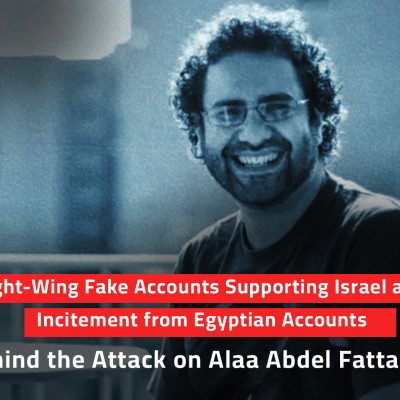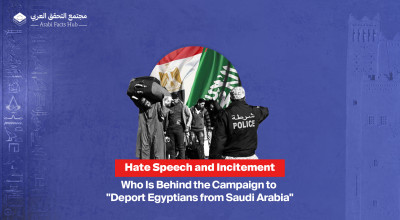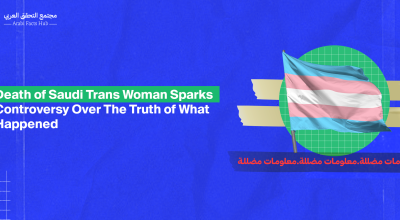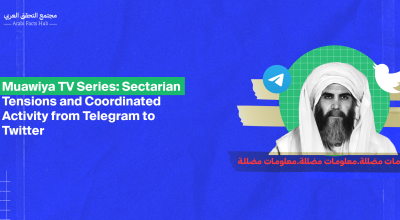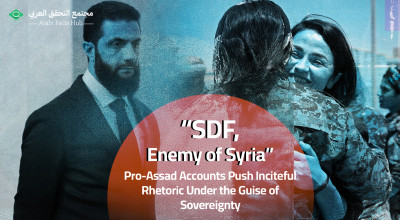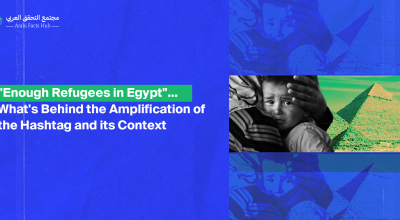"Thugs in the Name of the Law": Egypt’s Muslim Brotherhood Hijack Hashtag Criticizing Lawyers
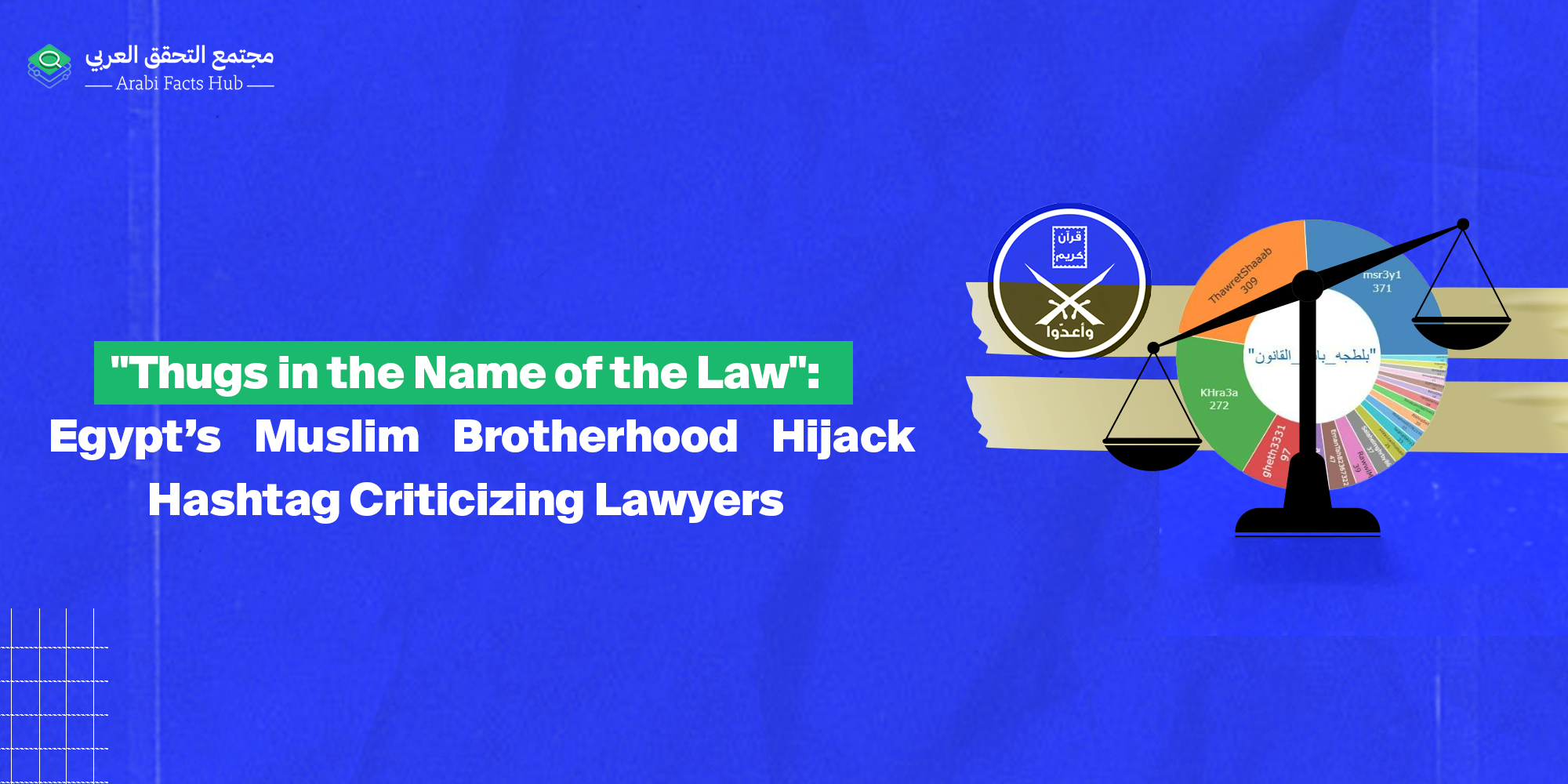
This is part of a series of investigative reports published in collaboration with Daraj media
Fake Twitter accounts appear to be associated with individuals and networks sympathetic to the Muslim Brotherhood known for its strong criticism of Egyptian President Abdel Fattah El Sisi and his government.
| Egypt | Scope |
| December 2022 | Launch date |
| Political | Classification |
Professional unions in Egypt rejected a government decision mandating that independent professionals register their data on the Tax Authority’s relatively novel electronic invoice system. Simultaneous with the Lawyers Syndicate’s controversial organizing of protests against the system, a hashtag emerged accusing lawyers of "thuggery in the name of the law". Supporters of the Muslim Brotherhood attempted to capitalize on the trend, which dominated social media in Egypt for several days.
The creators of the hashtag relied on a network of automated and fake Twitter accounts to attack lawyers and amplify their message so that it reaches the top of Egypt's trending topics in early December. Subsequently, behavioral indicators revealed that these fake accounts were associated with individuals or networks supporting the Muslim Brotherhood's critical discourse against Egyptian President Abdel Fattah El Sisi and his government.
What happened?
Egypt began implementing the electronic invoice system three years ago, with the eighth and final phase completed by mid December 2022. The government claims the system aims to regulate transactions by digitizing paper invoices and receipts to ensure accurate tax assessment. But lawyers refuse registration, arguing that their profession does not involve trading goods and their activities are primarily legal and intellectual of nature.
Protests by lawyers received significant attention, with organized demonstrations outside the Lawyers Syndicate offices in Cairo and other governorates. The protests were described as “massive” and “rare" in the current president’s era, despite there being some limited worker protests which remain out of the limelight. Attention to these protests was reflected in comments accompanied by images of the protest outside the headquarters of the syndicate in Cairo. In contrast, the hashtag #Thuggery_in_the_name_of _the_law emerged in tweets containing reactions critical of the lawyer protests. The hashtag garnered 1333 tweets, 1504 retweets, and 1780 likes.
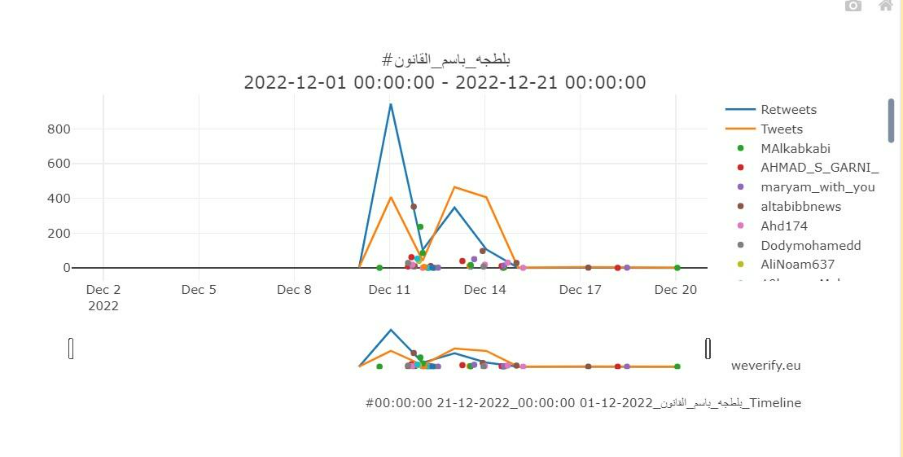
Targeted content and Fake Accounts
Hundreds of automated and fake accounts significantly contributed to the activation of the hashtag. Some were created in recent years, others in the past two years, and some even on the same day, with time gaps sometimes spanning only a few minutes. For example, there was a two-minute time difference between creating the accounts @symmd11257229 and @alhyahrfyq255, with the former created at 10:17 AM on November 13th and the latter at 10:19 AM on the same day. Another instance includes the accounts @usershrouk and @usermaii, with a four-minute gap, where the former appeared at 7:24 PM on July 17, 2022, and the latter at 7:29 PM.
These accounts actively participated in the hashtag #Thuggery_in_the_name_of _the_law hashtag as well as other trending hashtags in recent months, such as #I_Wont_Protest_on_November_11, which appeared as a coordinated response to a call by the Muslim Brotherhood for demonstrations on 11 November at the backdrop of the COP 27 events which took place in Egypt. The two accounts were also part of a wide network of fake accounts that attacked government critics, including artist Khalid Abol Naga. In September, the hashtag #AbolNaga_supports_homosexuality was launched, with coordinated contributions from these two accounts.
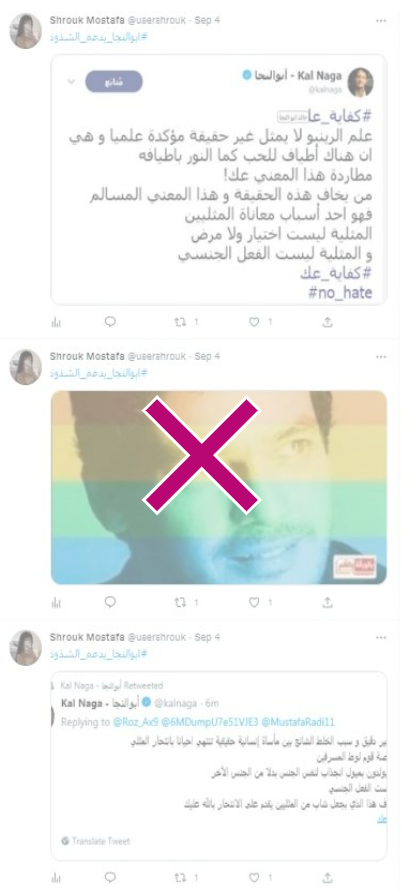
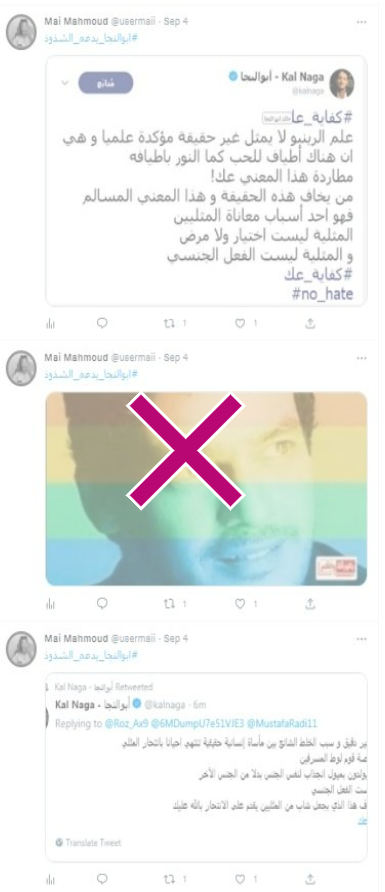
Two accounts, @Alysabe59440669 and @brhymls64796971, were created within an 18-minute time frame on 19 October 2021. These accounts were among those that posted around 200 tweets under the hashtag #Thuggery_in_the_name_of _the_law, an exceptionally high rate compared to accounts owned by regular individuals.
Additionally, the account @eldarddery, which previously engaged in coordinated activities attacking government critics, activists and international NGOs, participated heavily on the hashtag. In December 2021, this account was part of coordinated efforts to attack organizations like Human Rights Watch and Amnesty International for advocating the release of imprisoned activists, including Mohamed El Baqer, Mohamed Oxygen, and Alaa Abdel Fattah. The account featuring the image of Zakaria El Dardiry, a comedic character from the famous Egyptian movie "El Nazer," accused the two organizations of "misleading" and "altering facts" after they demanded the release of these prisoners.
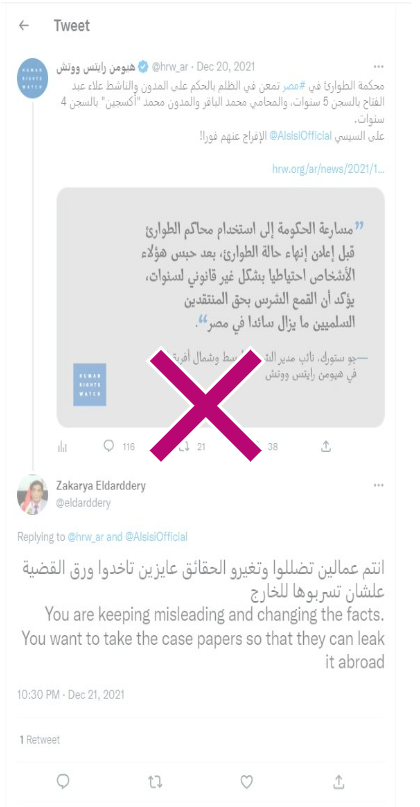
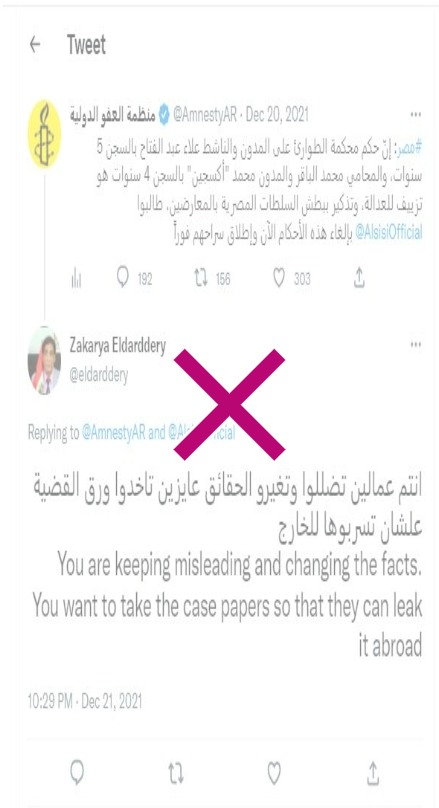
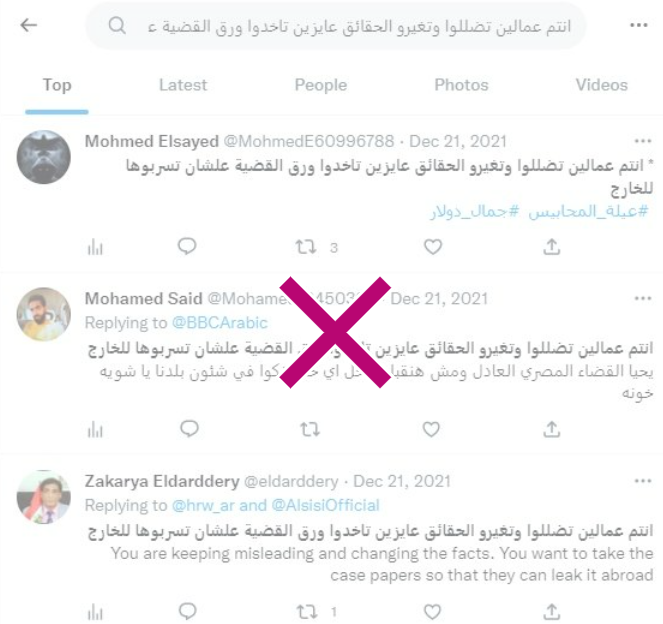
El Dardiry used to target media institutions, journalists, and lawyers, and once commented on a conversation between prominent journalist Ayman El Sayad and human rights activist Negad El Borai, member of the National Dialogue Committee, accusing him of following any interest, a statement he wrote in response to various tweets by El Borai.
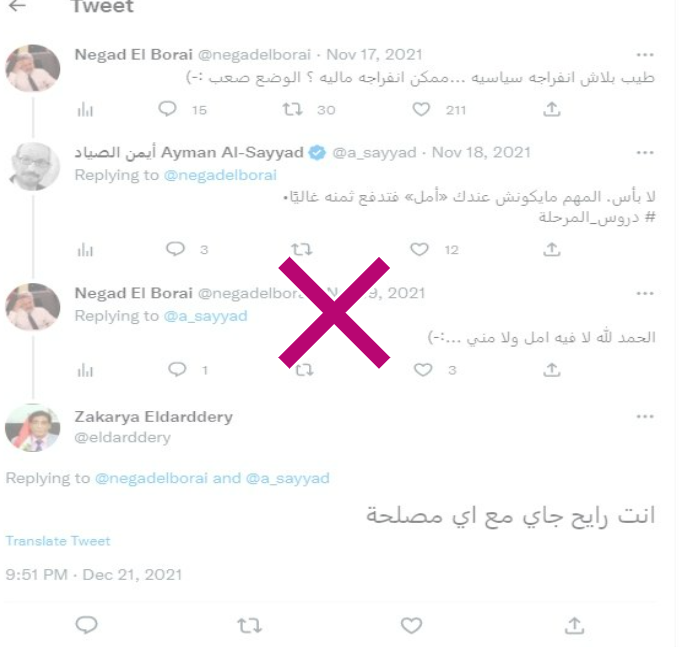
We noticed that the account Bassant El Basbousa @albsbwsh was one of the influential accounts in the campaign targeting the lawyers’ protests, as indicated by accounts participating on the hashtag by comments and mentions.
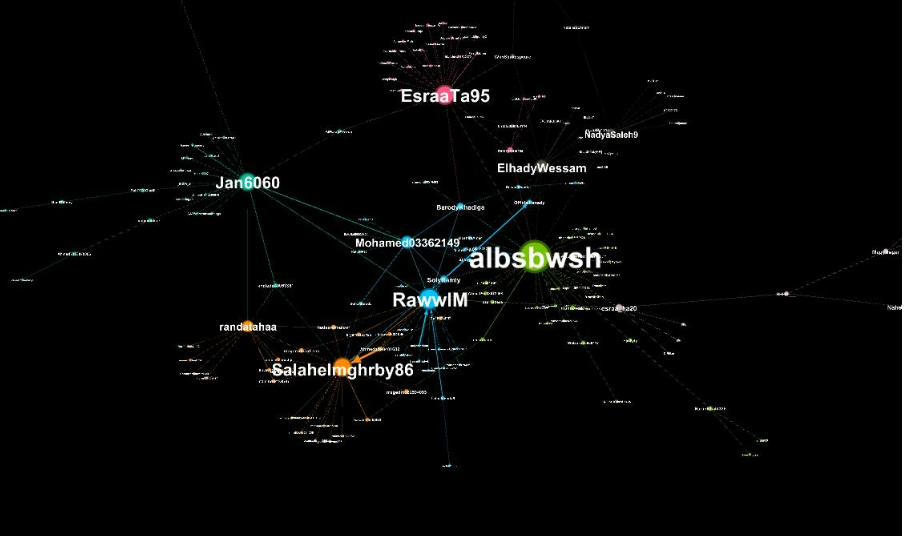
An illustration showing the most influential accounts in the hashtag #Thuggery_in_the_name_of _the_law using the Gephi tool.
To promote the hashtag, the account sought support from Bassem El Masri, one of the prominent engineers of online campaigns supporting the Egyptian president and criticizing his opponents in recent years. Despite the tweet receiving significant engagement, it was noteworthy that El Masri did not express his approval or like the tweet, based on the interactions observed.
Basant and Basem are not friends on Twitter, although she follows him, and she has participated in some of the hashtags which he had launched. Typically, Basem, whose story we have detailed in previous analyses, does not engage heavily with the hashtag that later became a trend in Egypt, merely acting as a facilitator.
The reason for Basem's lack of interaction with Basant is unknown, despite his engagement with El Dawlageya accounts and supporters of President Abdel Fattah El Sisi. It is also unclear whether there is any covert coordination between them.
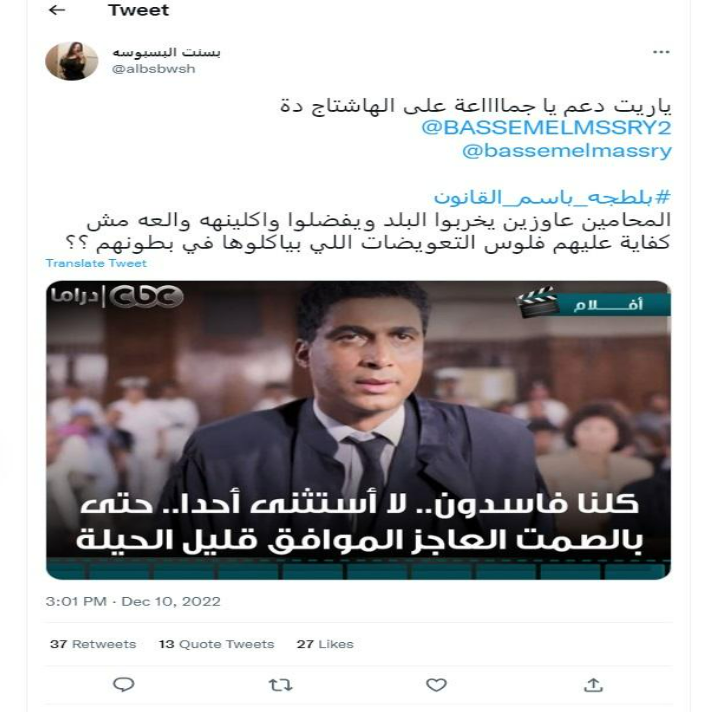
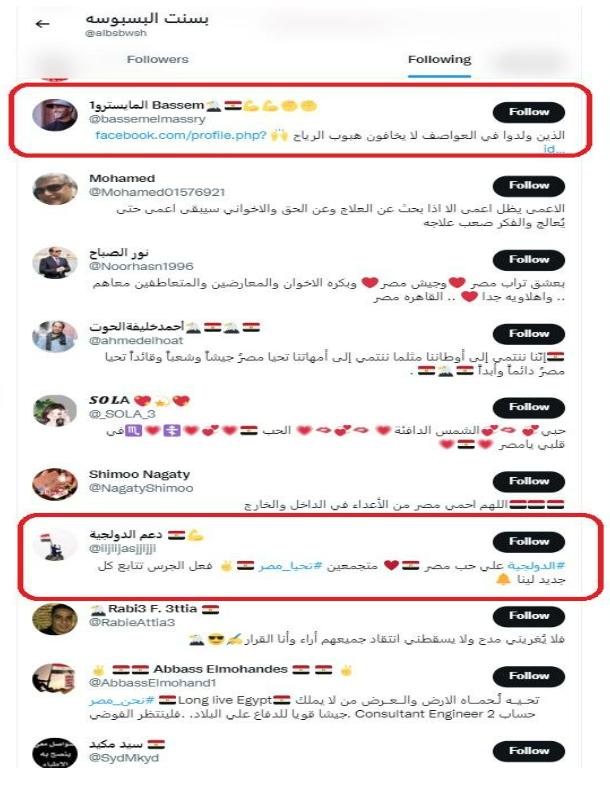
Basant follows a network of accounts involved in trolling, such as the account Rabab Mostafa, which was created last October and uses a stock image. Along with other accounts, it attacked Egyptian journalist Basma Mostafa, who is currently in Germany, after she wrote about her bitter experience of pregnancy and imprisonment in Egypt.
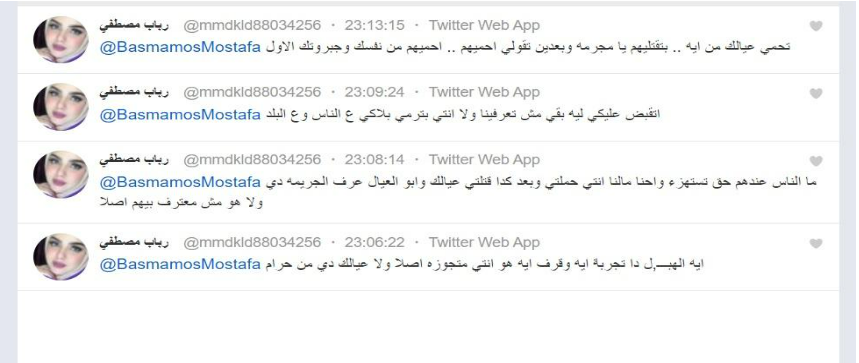
On Twitter, Basant has over 8,000 followers, despite having only tweeted 160 times from the account created in December 2021, which is unusual.
We noticed that the majority of the tweets include hashtags attacking lawyers, along with tweets containing light content. Upon closer examination, we found three tweets in Basant's account. The first and second were retweets of sexual content, posted by accounts that engage in that type of content. The third tweet was a retweet of a tweet posted by the Saudi Sovereign Wealth Fund.
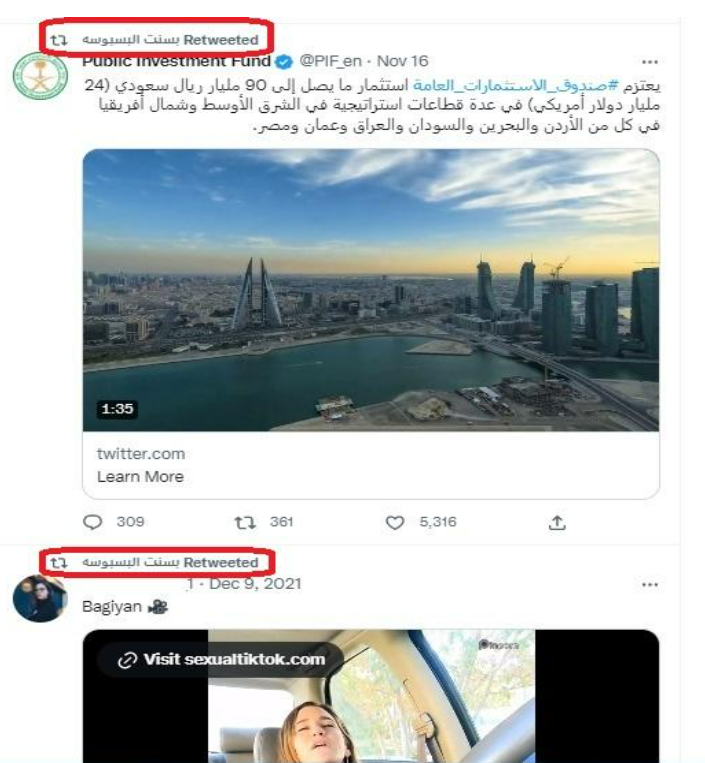
This made us even more suspicious of the account's nature before it started engaging in endorsing campaigns that are supportive of government agendas. Our findings suggest that the account's last tweets featuring sexual content were posted in mid November of the previous year, based on interaction trends with the account back then. When we clicked to view these tweets, we discovered that they had been removed, indicating that the account had been vigorously involved in sharing explicit content and had garnered notable engagement just weeks before actively participating in the hashtag targeting lawyers.
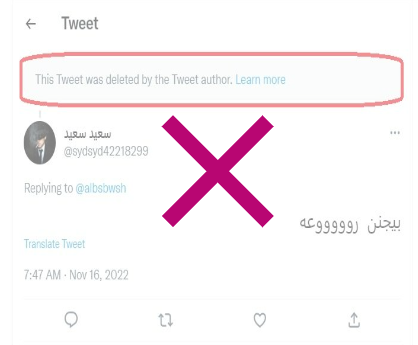
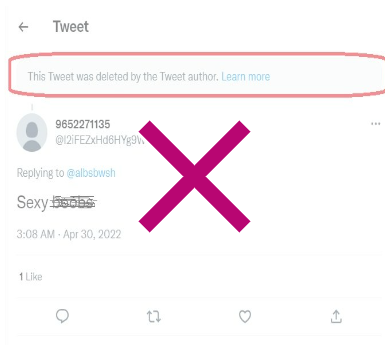
We can comfortably say that this is a fake account initially created to share sexual content, and later transitioned to political subjects, leaving its future direction uncertain.
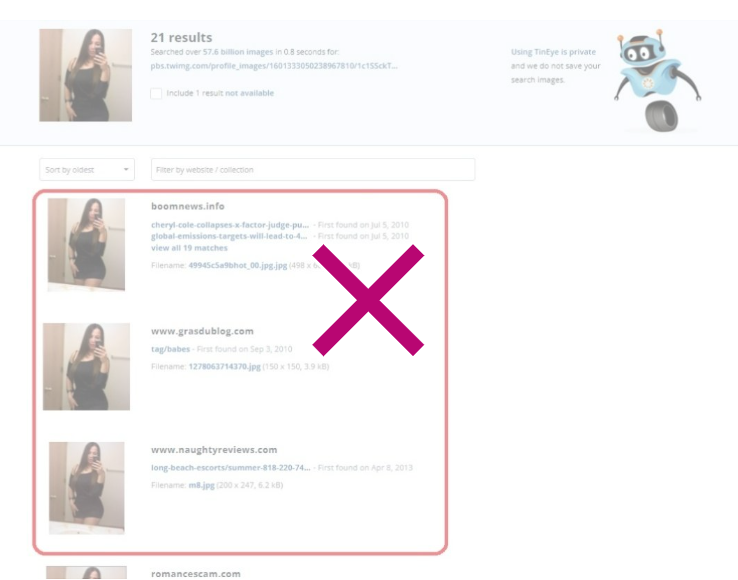
A second wave of hashtags
The hashtag remained on the local trend list for several days, experiencing two notable peaks of activity. According to the illustrative chart published at the beginning of the analysis, this occurred between the 11th and 14th of December. The content of archival accounts indicates that the second peak favored the Muslim Brotherhood. This was simultaneous with activity by fake accounts that typically criticize the Egyptian regime and participate in online campaigns and hashtags critical of El Sisi.
Some of these hashtags appeared daily on the trend list over the past months, including: #Ousting_Sisi, #Sisi_leave, #Mobilize_for_11November, #Join_11November_liberate_your_country, #Leave_enemy_of_God, #After_the_match, #Abdullah_AlSharif_mobilize_for_the_revolution.
These accounts competed for influence on the hashtag #Thuggery_in_the_name_of_law with accounts supportive of the Egyptian president and his government's policies.
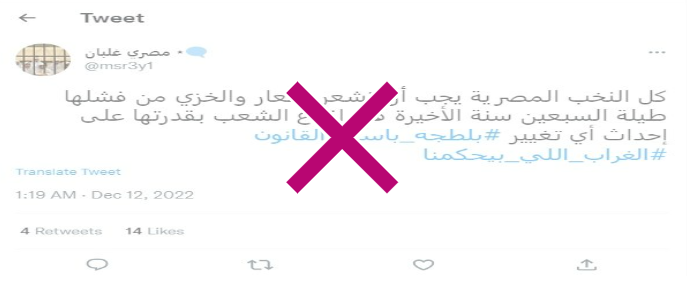
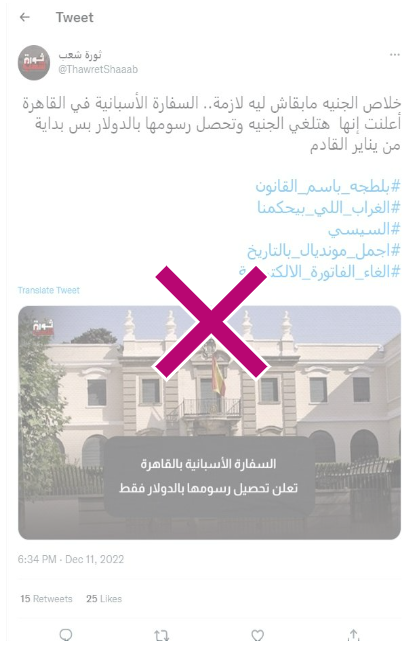
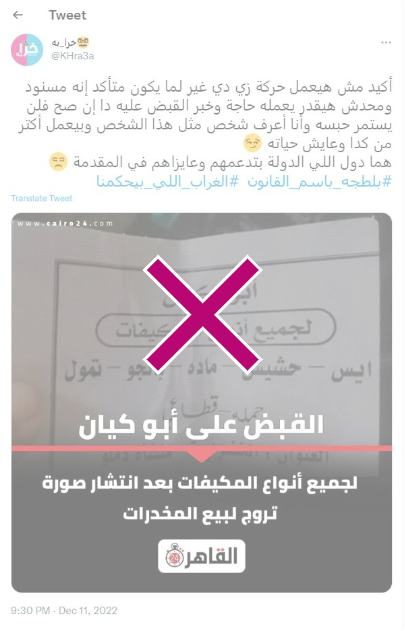
Accounts that stood out as the most impactful and interactive within the hashtag include: @KHra3a, @msr3y1, @ThawretShaaab, and @xxxxxxxxhussain.
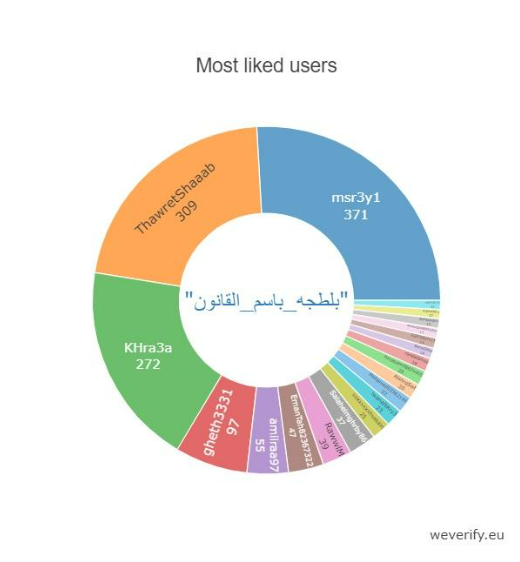
In addition to the hashtag #Thuggery_in_the_name_of _the_law, some tweets from accounts sympathetic to the Muslim Brotherhood contained other hashtags, such as #Mujahedoun_team, which is a virtual coalition aimed at promoting hashtags with Islamic orientations. We discussed its activity in previous analyses, including the analysis of the "We want to live" campaign in the Gaza Strip.
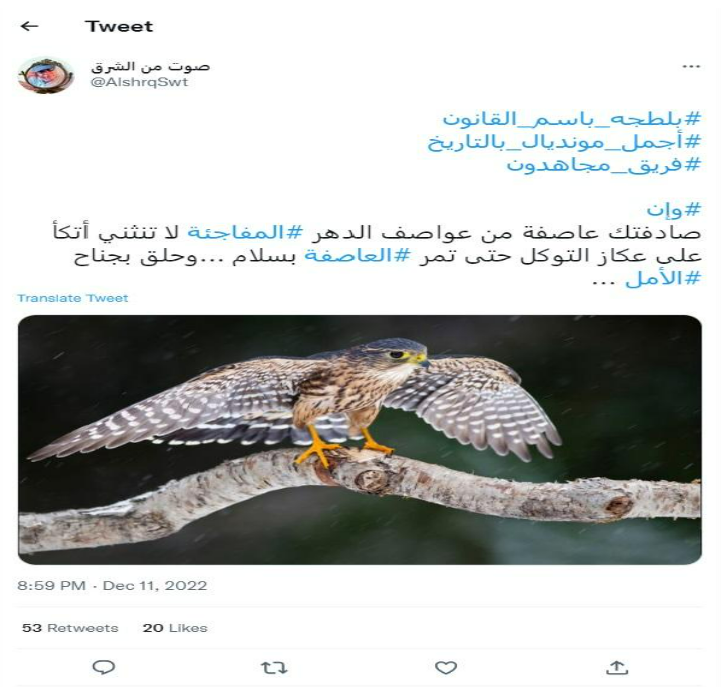
Repeated Content and Conflicting Discourses
Repeated content was predominantly used by the first group of accounts to drive the hashtag before the second group attempted to capitalize on its appearance in the list of trending topics.
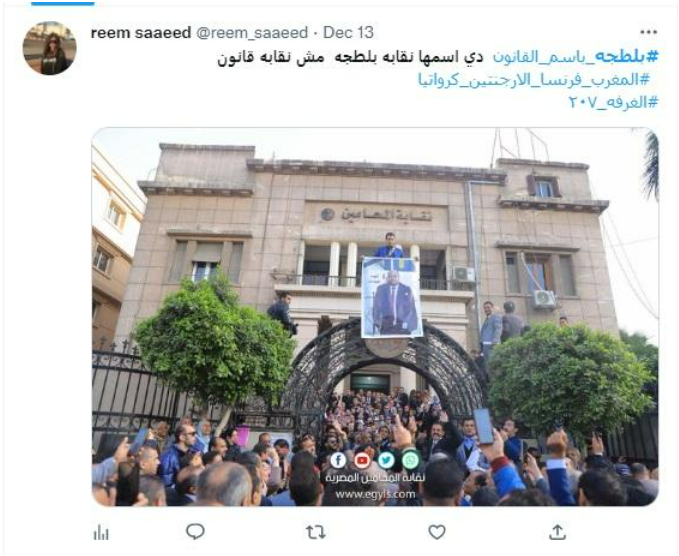
This repetitive content, often riddled with spelling errors, contained derogatory phrases aimed at lawyers, branding them as "deceivers, corrupt, swindlers, thugs," while also mocking images of participants in the protests.
In contrast, while the initial group's discourse primarily focused on hurling insults at lawyers alongside the hashtag, the second group's accounts shifted their focus towards highlighting the ongoing crises in Egypt, often linking them to President Sisi, while encouraging protests and distributing blame.
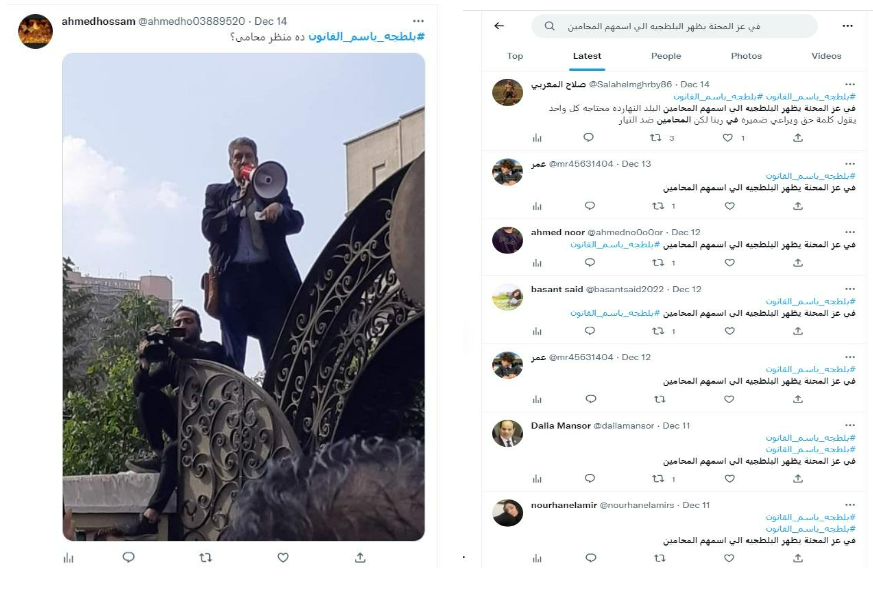
In summary:
- The first group relied on fake and fabricated accounts to promote and amplify the hashtag.
- Both groups of accounts were part of online campaigns, some supportive and others opposing El Sisi.
- Accounts with sexual content shifted their focus to politics, such as Bassant El Basbousa.
- Some accounts engaged in trolling and attacking media institutions, journalists, activists, and human rights groups.
Tools utilized:
InVID Verification Plugin
Twitter Search
Tweetdeck
Whotwi
Gephi
Hoaxy


